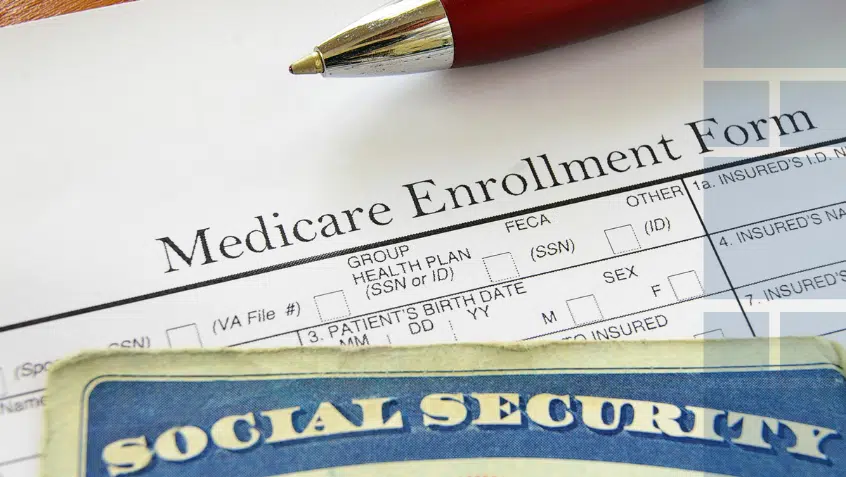Join Us Live for a Discussion on Medicare, Democracy, and the Future of Health Care
How does being an inpatient or an outpatient impact my Medicare coverage and health care costs?

[x_blockquote cite=”Dustin (Chicago, IL)” type=”left”]Dear Marci,
My wife’s recent hospitalization was confusing for both of us and we are having difficulty figuring out her bills. How can we better understand Medicare coverage for hospital stays and how much services will cost us?
[/x_blockquote]
Dear Dustin,
When you enter a hospital for treatment you can be classified as an inpatient or an outpatient, and your status affects Medicare costs and coverage. You are an inpatient if your attending physician has formally admitted you as an inpatient. The only way to know if you are an inpatient is to ask, as there are no specific characteristics of your hospital stay that automatically make you an inpatient. For example, an overnight stay in the hospital does not necessarily mean you are an inpatient. In general, doctors will admit you as an inpatient if they expect that you will need to stay in the hospital for medically-necessary, inpatient-level care over two or more midnights.
If you are not formally admitted as an inpatient, then you are considered a hospital outpatient, even if you stay overnight. There are a number of hospital services that are almost always provided as outpatient care, such as an emergency room visit or planned outpatient surgery.
Observation services, sometimes called observation status, are outpatient services. They include ongoing short-term treatment and assessment of whether you should be admitted as an inpatient or if you can be discharged. Although they may involve an overnight or longer stay, observation services are outpatient services, so it is important to ask your doctor about the services you receive and what your hospital status is. Since observation services are provided to you as an outpatient, your coverage and costs will be different from the coverage and costs if you were an inpatient.
The hospital should provide you with a notice if you receive outpatient observation services for more than 24 hours. This is called the Medicare Outpatient Observation Notice (MOON). The MOON notifies you that you are receiving outpatient observation services and explains why you are an outpatient. Your doctor should also explain this notice to you in person. This notice is meant to reduce confusion that you may experience if you are in the hospital and unsure of your inpatient or outpatient status.
Your Medicare Part A costs for hospital care. If you have Original Medicare, your hospital stay is covered by Part A (hospital insurance) if you are a hospital inpatient, and by Part B (medical insurance) if you are a hospital outpatient.
If you are a hospital inpatient, you first must meet the Part A hospital deductible of $1,316 at the beginning of each benefit period. Once you meet the deductible, you pay zero dollars for the first 60 days of inpatient care in each benefit period. You owe $329 for days 61 through 90 in each benefit period, and $658 per lifetime reserve day after day 90. You have 60 lifetime reserve days that can only be used once.
Your Medicare Part B costs for hospital care. If you receive physicians’ services while in the hospital, or are a hospital outpatient, then you will owe a 20% coinsurance of Medicare’s approved amount for that care. You typically owe a coinsurance amount for each medical service you receive in the hospital, after you meet your Part B deductible ($183 in 2017). For example, you will have separate coinsurance charges for x-rays, lab tests, and any physicians’ services you receive. Physicians’ services include any time you spent with a physician while you were in the hospital, even if that physician was not your primary doctor.
Dustin, if you have a Medicare Advantage Plan, you should contact your plan to learn what its costs are for hospital care. Medicare Advantage Plans can have deductibles and/or daily copayments for inpatient care, as well as high copayments for outpatient hospital services, so it is important to check with the plan to learn more about what costs you will owe.
– Marci
Show Comments
We welcome thoughtful, respectful discussion on our website. To maintain a safe and constructive environment, comments that include profanity or violent, threatening language will be hidden. We may ban commentors who repeatedly cross these guidelines.
Help Us Protect & Strengthen Medicare.
Donate today and make a lasting impact.
The Latest
Most Read
Add Medicare to Your Inbox
Sign up to receive Medicare news, policy developments, and other useful updates from the Medicare Rights.
View this profile on InstagramMedicare Rights Center (@medicarerights) • Instagram photos and videos









